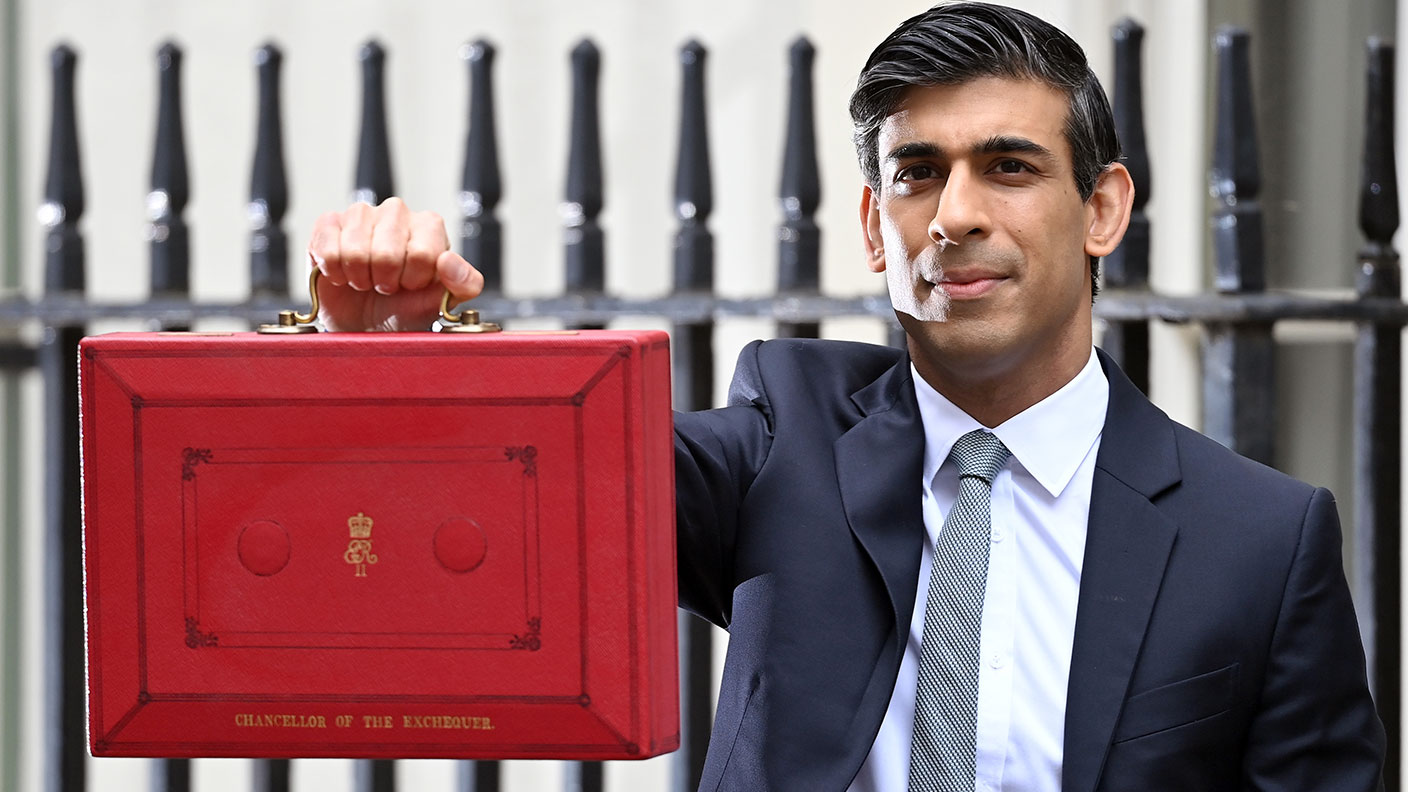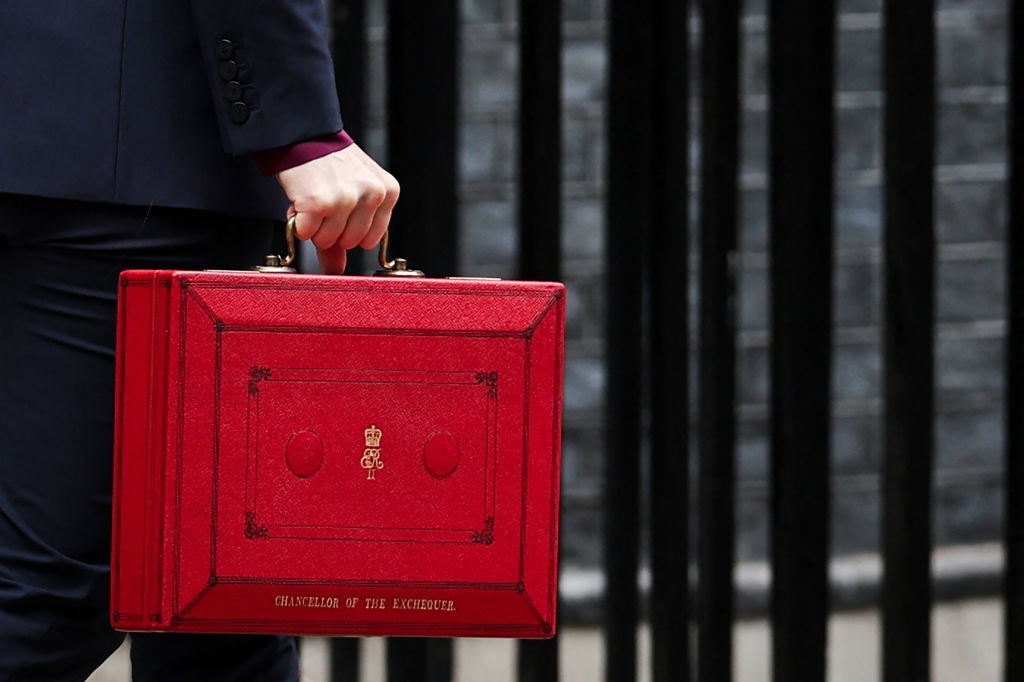What the recovery Budget means for your money
With his Budget, Rishi Sunak is hoping to protect the economic recovery and set out how to pay for all the stimulus. John Stepek looks at how he plans to do that, and explains what it means for you.


Get the latest financial news, insights and expert analysis from our award-winning MoneyWeek team, to help you understand what really matters when it comes to your finances.
You are now subscribed
Your newsletter sign-up was successful
Want to add more newsletters?

Twice daily
MoneyWeek
Get the latest financial news, insights and expert analysis from our award-winning MoneyWeek team, to help you understand what really matters when it comes to your finances.

Four times a week
Look After My Bills
Sign up to our free money-saving newsletter, filled with the latest news and expert advice to help you find the best tips and deals for managing your bills. Start saving today!
There was a lot of stuff in the Budget yesterday. With Rishi Sunak in charge, we’re back to the days when the chancellorship was an opportunity to audition for the big job – prime minister – in front of the country. So he’s not going to duck the chance to show off a bit.
But here’s what it boils down to: he’s increasing the amount he’s spending now, but with big tax hikes down the road to pay for it all. And make no mistake – these are seriously big tax hikes.
Buy now, pay later
Overall, Sunak’s approach is probably sensible: protect the recovery; pay for it later, but lay out the plans to do so now so that a) you don’t spook markets and b) you warm taxpayers up for just how tough it’ll be.
MoneyWeek
Subscribe to MoneyWeek today and get your first six magazine issues absolutely FREE

Sign up to Money Morning
Don't miss the latest investment and personal finances news, market analysis, plus money-saving tips with our free twice-daily newsletter
Don't miss the latest investment and personal finances news, market analysis, plus money-saving tips with our free twice-daily newsletter
We’re going to be in semi-lockdown until near the end of June, so he’s extended all of the government support schemes – from furlough to boosted universal credit to reduced VAT – until at least the end of September. He’s also piled on extra spending for 2022.
And of course, he’s propping up the all-important housing market by extending the stamp duty holiday and offering taxpayer-backed mortgages. We’ll have more on that elsewhere on the site later today. So he’s doing his best not to screw up the recovery by pulling the rug out from under anyone right away.
He’s also trying to encourage companies to spend a load of money on investment, with a rabbit out of the hat called the “super-deduction”. This means companies get a 130% tax relief on investments in qualifying plant and machinery. What does that mean? Put simply, it’s a big incentive to pull forward any spending plans – think of it being like the stamp duty holiday, only for building factories.
So you’ve got a lot of support and encouragement over the next couple of years which should hopefully make sure that the recovery really does kick in. Indeed, the Office for Budget Responsibility (OBR), the independent fiscal watchdog, reckons that the GDP will grow by more than 7% next year.
However, from 2023 we start to pay for it. (In fact, we start to pay for it a bit earlier than that, but in a somewhat stealthy way). Corporation tax was the big headline-grabber. The corporation tax rate is going up from 2023 by six percentage points (or almost a third) from 19% to 25%. That’s a huge jump. It won’t affect companies with profits of below £50,000, and it will be tapered up to £250,000 (in other words, you won’t pay the full 25% until the £250,000 level).
However, it’s still a significant leap and it’s an interesting gamble at a time when Britain particularly wants to attract investment, not discourage it. Presumably Sunak is hoping that the super deduction will be tempting enough for companies in the meantime. (And also, at 25% it’s still not the highest rate in the world so he might well be thinking that the switching costs aren’t worth it).
But the other big money spinner comes from, well, doing nothing. All personal tax allowances are being frozen until at least April 2026. This is fiscal drag – where you collect more tax because income and asset prices go up, but your tax bands stay exactly the same.
Fiscal drag has been the secret weapon of governments for a long time – your classic “stealth” tax, and one of Gordon Brown’s favourites – yet Sunak was surprisingly upfront about it. There’s two reasons for that: one, you couldn’t get away with freezing tax bands for this long and no one noticing – he doesn’t want to be accused of being underhand. And, two, the electorate was prepped to expect a massive capital gains tax hike, or some other nasty. By comparison, this doesn’t sound too bad.
And yet it is. Fiscal drag is brutal. And you can see the impact of it when you look at the tax take as a percentage of GDP. It’s targeting levels that we haven’t seen since the 1960s. We’ll go into fiscal drag in more detail too later today. But it’s going to have a big impact on anyone close to breaching the Lifetime Allowance in their pension wrapper, for example.
Inflation would be a great help here, as long as there’s not too much
The good news here is that, while these tax hikes are massive, they are probably enough. If the economy recovers as expected, then we won’t need more tax rises in the future. And, probably, what Sunak is hoping for is that as the day gets nearer, he might actually be able to row back on some of these measures.
Why? Inflation. If the recovery is stronger or inflation higher than expected, then fiscal drag will end up raising even more money than expected for the government. And if inflation perks up but interest rates and borrowing costs stay under control, then you get to erode the debt more quickly too.
The thing is, what you have to understand about inflating away the debt is that you can’t talk about inflating away the debt. You can’t turn around and say: “This is the strategy”, because that sounds irresponsible. More importantly, it means that all the people who you’re relying on to pay the inflation bill get rattled and don’t play along.
For example, you still need to sell government bonds. Yes, if push comes to shove, the Bank of England will buy the ones you can’t get rid of (and I suspect the new mandate – where the central bank needs to help tackle climate change somehow – will come into this). But you don’t want to go down the coercion route too obviously; it’d still be nicer if you could sell them to investors.
Also, you don’t want people to start believing that inflation is the end goal. Expectations play a role in this stuff. If people expect inflation, then it becomes a self-fulfilling prophecy. And, while you want more inflation than we’ve had, you don’t want too much. You don’t want it to get out of hand, because if it does, then things start to break down, and more importantly, people stop voting for you.
So that’s the overview. Sunak is spending today in the hope that the recovery turns into a boom. He’s taxing individuals more heavily pretty much right away, but it’ll get a lot worse between now and 2026. He’s giving companies a big tax break, then taxing them a lot more from 2023 (but watch this space).
He’ll be hoping that inflation and a more powerful than forecast recovery will give him breathing space to do something positive ahead of the 2024 election. But in the meantime, if you’re an investor, the main takeaway from the budget is that you need to ensure that you’re making full use of your tax allowances – and your Isa allowance in particular – where you can get them, because they’re only getting smaller from here on in.
We’ll be covering Isas and other tax-efficient savings vehicles in more detail in a couple of issues’ time in MoneyWeek magazine. If you’re not already a subscriber, get your first six issues (plus a beginner’s guide to bitcoin) absolutely free here.
Get the latest financial news, insights and expert analysis from our award-winning MoneyWeek team, to help you understand what really matters when it comes to your finances.

-
 Should you buy an active ETF?
Should you buy an active ETF?ETFs are often mischaracterised as passive products, but they can be a convenient way to add active management to your portfolio
-
 Power up your pension before 5 April – easy ways to save before the tax year end
Power up your pension before 5 April – easy ways to save before the tax year endWith the end of the tax year looming, pension savers currently have a window to review and maximise what’s going into their retirement funds – we look at how
-
 Is Britain heading for a big debt crisis?
Is Britain heading for a big debt crisis?Opinion Things are not yet as bad as some reports have claimed. But they sure aren’t rosy either, says Julian Jessop
-
 When is the Autumn Budget and what should you expect?
When is the Autumn Budget and what should you expect?Chancellor Rachel Reeves is set to deliver her second Autumn Budget next week – but what exactly does the fiscal event involve?
-
 UK wages grow at a record pace
UK wages grow at a record paceThe latest UK wages data will add pressure on the BoE to push interest rates even higher.
-
 Trapped in a time of zombie government
Trapped in a time of zombie governmentIt’s not just companies that are eking out an existence, says Max King. The state is in the twilight zone too.
-
 America is in deep denial over debt
America is in deep denial over debtThe downgrade in America’s credit rating was much criticised by the US government, says Alex Rankine. But was it a long time coming?
-
 UK economy avoids stagnation with surprise growth
UK economy avoids stagnation with surprise growthGross domestic product increased by 0.2% in the second quarter and by 0.5% in June
-
 Bank of England raises interest rates to 5.25%
Bank of England raises interest rates to 5.25%The Bank has hiked rates from 5% to 5.25%, marking the 14th increase in a row. We explain what it means for savers and homeowners - and whether more rate rises are on the horizon
-
 UK inflation remains at 8.7% ‒ what it means for your money
UK inflation remains at 8.7% ‒ what it means for your moneyInflation was unmoved at 8.7% in the 12 months to May. What does this ‘sticky’ rate of inflation mean for your money?